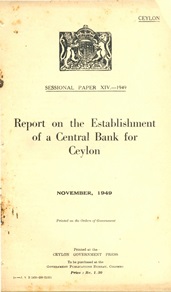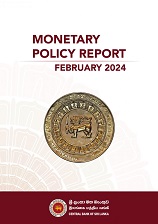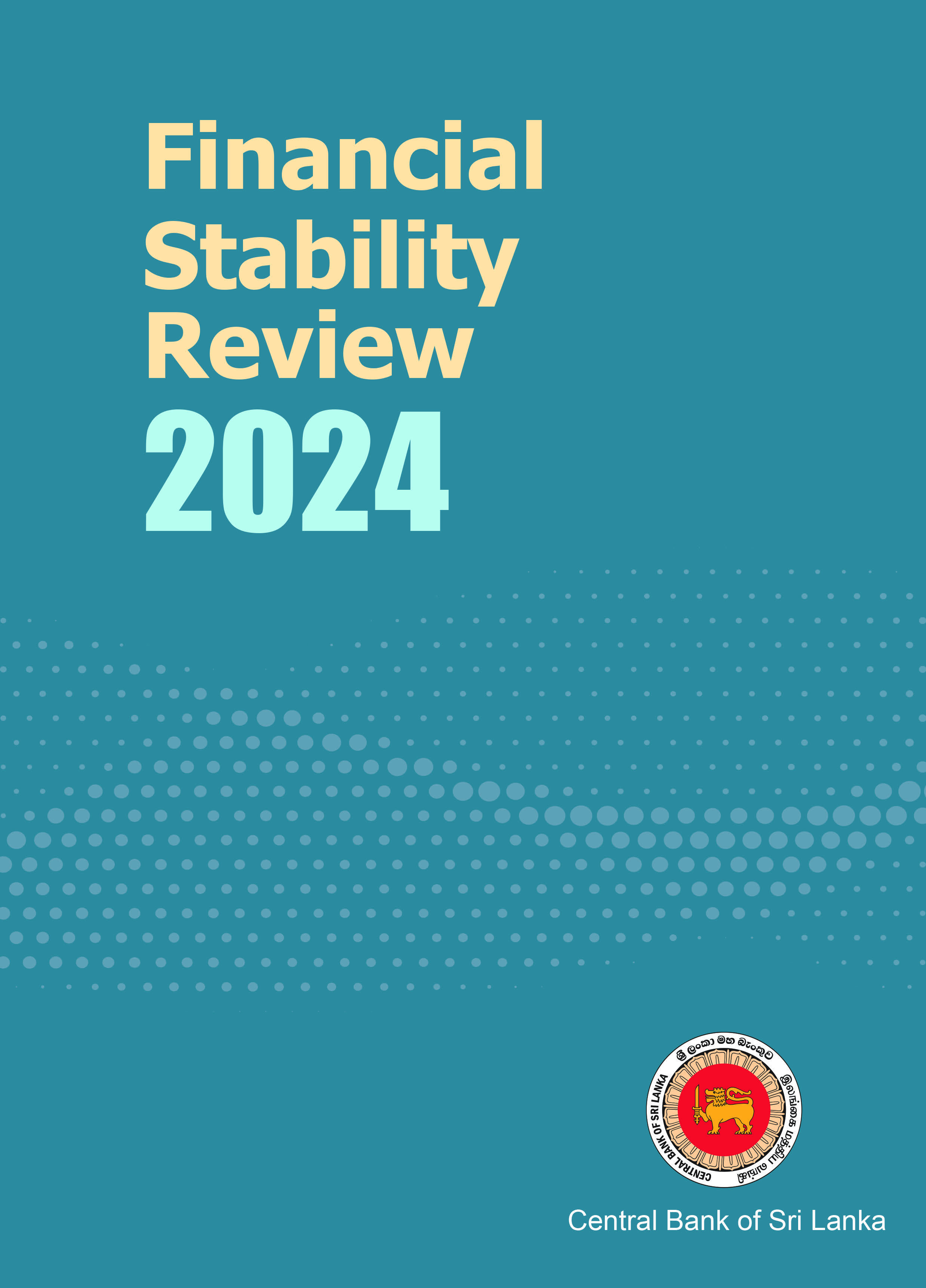Government Securities Market
Treasury Bills and Treasury Bonds Market
Domestic currency debt is mainly raised by the Government of Sri Lanka for budgetary purposes through,
![]() Treasury bills (T bills) which are short-term debt instruments issued under the Local Treasury Bills Ordinance No. 8 of 1923 (as amended) and;
Treasury bills (T bills) which are short-term debt instruments issued under the Local Treasury Bills Ordinance No. 8 of 1923 (as amended) and;
![]() Treasury bonds (T bonds) which are medium to long term debt instruments issued under the Registered Stock and Securities Ordinance No. 7 of 1937 (as amended).
Treasury bonds (T bonds) which are medium to long term debt instruments issued under the Registered Stock and Securities Ordinance No. 7 of 1937 (as amended).
Treasury bill market is a segment of the domestic money market. Highly liquid nature of Treasury bills offers investors an alternate source of liquidity whilst generating a return on investment. Therefore, interest rate movements in the Treasury bill market provide a benchmark for the short-term credit market. In addition, changes in the volumes and rates in the Treasury bill market affect the cost, profitability and liquidity of financial institutions.
Treasury bills and bonds are accepted as collateral by the Central Bank under its open market operations. In addition, financial institutions are required to maintain a significant exposure to default risk-free investments to enhance financial stability by the regulator, thus entrenching the importance of Treasury bills and bonds which are considered as default-risk free due to inherent repayment guarantee by the fiscal authority. Treasury bills and bonds are jointly denoted by the term Government securities in day-to-day market terminology.
Main Features of Treasury Bills and Bonds in Sri Lanka
![]() Treasury bills are issued with 91-day, 182-day and 364-day maturities (standard maturities issued at primary auctions) whereas, Treasury bonds are issued for maturities of from 2- 30-years as per the provisions of Local Treasury Bills Ordinance No. 8 of 1923
Treasury bills are issued with 91-day, 182-day and 364-day maturities (standard maturities issued at primary auctions) whereas, Treasury bonds are issued for maturities of from 2- 30-years as per the provisions of Local Treasury Bills Ordinance No. 8 of 1923
![]() Treasury bills, normally issued at a discount are repaid at face value at the maturity
Treasury bills, normally issued at a discount are repaid at face value at the maturity
![]() Treasury bonds carry bi-annual coupon payments and are repaid at face value at the maturity.
Treasury bonds carry bi-annual coupon payments and are repaid at face value at the maturity.
![]() Treasury bonds can be issued at discount, par or premium
Treasury bonds can be issued at discount, par or premium
![]() Market determined yield rates prevail
Market determined yield rates prevail
![]() Tradable in the secondary market
Tradable in the secondary market
![]() Issued in scripless form
Issued in scripless form
![]() A collateral for short-term fund raising
A collateral for short-term fund raising
Benefits of Investing in Treasury Bills and Bonds
![]() It is considered as default-risk free, since issued by the sovereign government.
It is considered as default-risk free, since issued by the sovereign government.
![]() Since T bills and T bonds are tradable in the secondary market, they are highly liquid money market instruments. All receipts of interest and maturity proceeds by foreign investors are fully repatriable.
Since T bills and T bonds are tradable in the secondary market, they are highly liquid money market instruments. All receipts of interest and maturity proceeds by foreign investors are fully repatriable.
![]() It is possible to have joint investments.
It is possible to have joint investments.
![]() Under the current law, Government Securities are not subject to withholding tax.
Under the current law, Government Securities are not subject to withholding tax.
![]() CBSL securely registers these investments in the Central Depository System (CDS), which is connected to an automated Scripless Securities Settlement System (SSSS).
CBSL securely registers these investments in the Central Depository System (CDS), which is connected to an automated Scripless Securities Settlement System (SSSS).
How to invest in Treasury Bills Treasury Bonds
Treasury bills/ bonds can be purchased at any time from the secondary market through primary dealers (PDs) or licensed banks. Primary dealers are appointed by the CBSL to subscribe to issuances of Government securities through the primary market (initial issuance). Other persons who wish to invest in Treasury bills and bonds at the primary market may do so by placing their bids through PDs.
Non-resident investors are permitted to maintain a rupee denominated “Inward Investment Account (IIA)” with a licensed commercial bank in Sri Lanka for their investments in Government securities. Total Treasury bill and bond holdings by non-resident investors in aggregate has been capped at 5 % of the outstanding Treasury bills and bonds separately at any given time.
(more information on IIA can be found via https://www.dfe.lk/web/images/rdevelopment/d8cca82aaa30bb8155cf56a4a8afbffb-2213-35-E.pdf)
A Securities Account in the CDS (the registry) has to be created in the name of the investor/s by the dealer direct participant (licensed bank or SPD) of the CDS. Recording of ownership changes following any transaction in Government securities will take effect on a real time basis depending on the settlement of associated fund transfer.
Interest and maturity proceeds of Treasury bills and bonds are credited to the investor's account through respective dealer direct participant maintaining securities account of the investor on the due date. In the event due date falls on a non-business day, settlement will be postponed to the next business day.
Obtaining information on Treasury Bills and Bonds
![]() Details on available Treasury bills and bonds and prevailing market rates can be obtained from licensed banks, PDs and CBSL (CBSL web site).
Details on available Treasury bills and bonds and prevailing market rates can be obtained from licensed banks, PDs and CBSL (CBSL web site).
![]() Details on Treasury bond and bill Issuance/Settlement Calendar can be obtained from licensed banks, PDs and CBSL (CBSL web site)
Details on Treasury bond and bill Issuance/Settlement Calendar can be obtained from licensed banks, PDs and CBSL (CBSL web site)
![]() Requests for Treasury bill and bond holding confirmations shall be submitted to the Superintendent of Public Debt Department of CBSL.
Requests for Treasury bill and bond holding confirmations shall be submitted to the Superintendent of Public Debt Department of CBSL.










